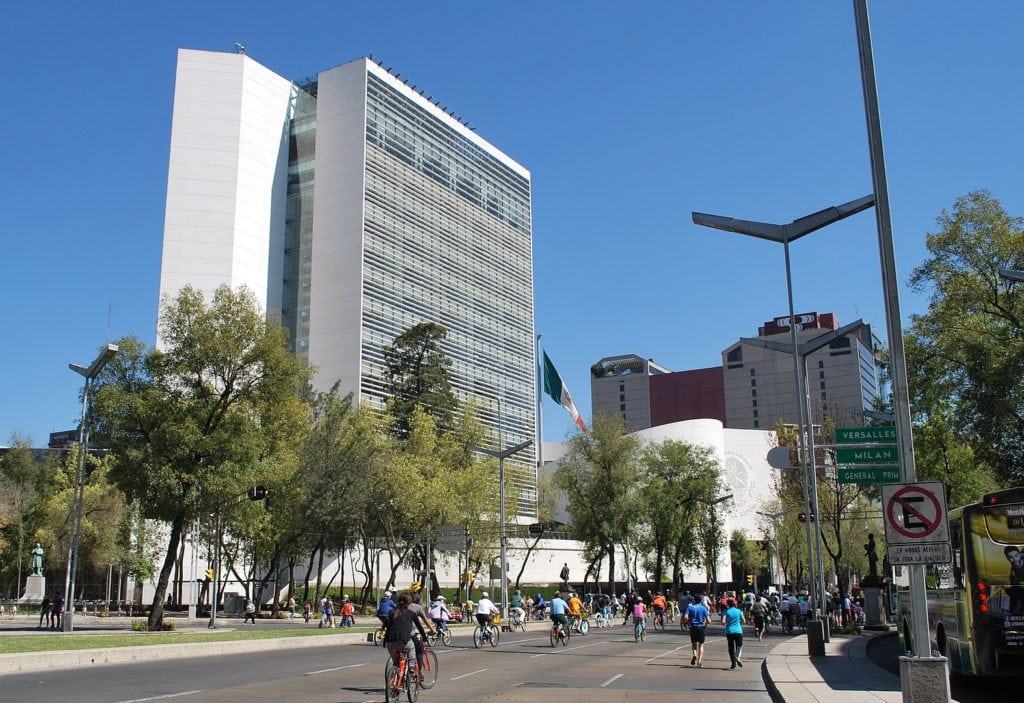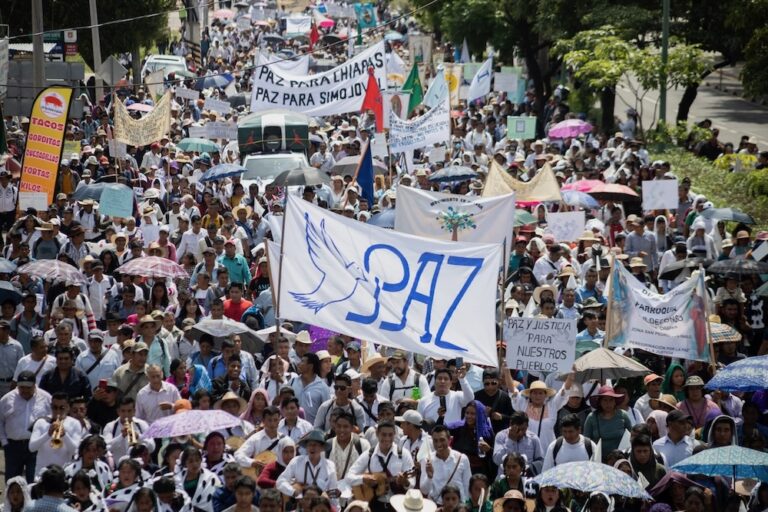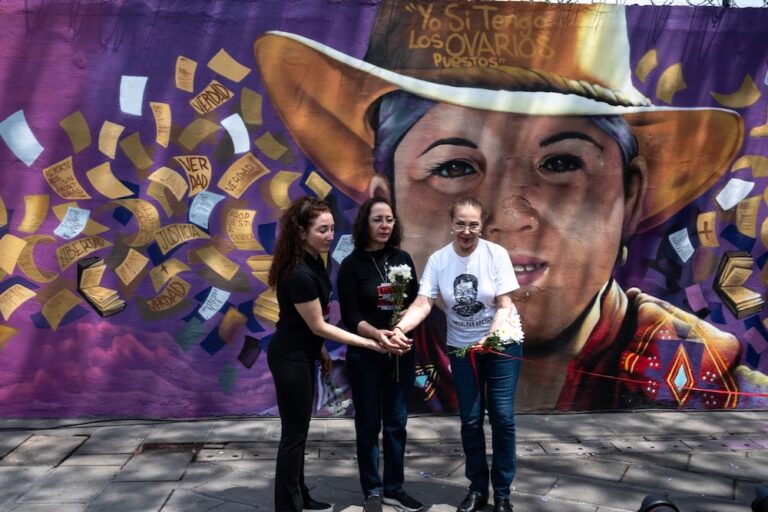The Senate of the Republic has an opportunity to reverse a decision that if fully approved would aggravate the situation of risk in which thousands of individuals live in Mexico. As such, we call on you to reconsider the 6 October decision taken by the Chamber of Deputies regarding the elimination of 109 public funds and trusts.
Members of the Chamber of Senators of the Congress of the Union,
On Tuesday, 6 October 2020, the Chamber of Deputies voted for general approval of an initiative that proposes the elimination of 109 government trusts and other types of federal funds that were designed to meet a variety of societal wants and needs, among them the protection of journalism and human rights in Mexico.
With 242 votes in favour of the initiative, the deputies approved a proposal that would eliminate the trust fund that supports the Federal Mechanism for the Protection of Human Rights Defenders and Journalists, as well as the Comprehensive Aid, Assistance and Reparations Fund. This puts the security and lives of thousands of people who have benefited from these funds at risk, including victims and relatives of missing persons (i.e. the “disappeared”). Regarding the Federal Mechanism for the Protection of Human Rights Defenders and Journalists. The lives of approximately 1,340 individuals are currently being protected by the Mechanism, and more than 8,785 protective and assistive measures designed to guarantee the safety and safeguard the lives of individuals have been granted under this system.[1]
With respect to the Comprehensive Aid, Assistance and Reparations Fund, any trace of the resources designated for immediate aid, assistance, support, rehabilitation and even reparations for victims of crime and human rights abuses will be eliminated. The Chamber of Deputies’ vote overwhelmingly modifies responsive, efficient and transparent access to these resources via the Autonomous Mechanism that is activated when an individual contacts the Commission for Attention to Victims. By way of frequent interactions, the purpose of this system is to provide responsive assistance right up to the point of provision of reparations.
In concrete terms, the initiative eliminates Article 6, Section VIII of the federal victims’ law (Ley General de Víctimas, LGV), which encompasses the Comprehensive Aid, Assistance and Reparations Fund, and it relegates the participation of the Executive Commission for Attending to Victims (Comisión Ejecutiva de Atención a Víctimas, CEAV)—via the Interdisciplinary Evaluation Committee—to an irrelevant role, taking on a dynamic of minimal care with with the main role being the elaboration of opinions for access to resources.
Violence against the press and human rights defenders has grown exponentially. During the first half of 2020, 406 attacks on the press were documented, 45% more than in 2019, [2] and four assassinations took place. In addition, within the same time frame seven human rights defenders were assassinated.
Eliminating the trust funds that serve to protect journalists and human rights defenders will increase the risk of attacks and will negatively impact freedom of expression and access to information rights, which constitute essential aspects of a democracy. As was noted by the members of the Espacio OSC group of civil society organisations, the disappearance of the trust funds represents the “elimination of the locks that prevented resources from being used for purposes other than the provision of protective measures and attention to victims. By passing into the hands of the Interior Secretariat [Secretaría de Gobernación, SEGOB], the door is now open for arbitrary use of resources and, thus, opacity and corruption.”
The Inter-American Commission on Human Rights (IACHR), the UN and IACHR special rapporteurs on freedom of expression and the UN High Commissioner for Human Rights have provided recommendations to the Mexican government regarding strengthening of the Mechanism for the Protection of Human Rights Defenders and Journalists. A trust fund with sufficient financing to guarantee protection of the individuals supported by the Mechanism is among the recommendations put forward by these international bodies.[3]
We, at IFEX, the foremost global network defending and promoting freedom of expression and information, with over 100 member organisations in more than 65 countries, are concerned about the elimination of these funds and trusts since this move would lead to increased risks for those who practice journalism and those who defend human rights, freedom of expression and access to justice in Mexico.
The Senate of the Republic has an opportunity to reverse a decision that if fully approved would aggravate the situation of risk in which thousands of individuals live in Mexico. As such, we call on you to reconsider the 6 October decision taken by the Chamber of Deputies regarding the elimination of 109 public funds and trusts.
We look forward to a decision that will put an end to this initiative that would put the lives of thousands of individuals in Mexico at greater risk.
[1]Mechanism for the Protection of Human Rights Defenders and Journalists, Statement on trust 10232 for the protection mechanism, 3 April 2020, https://www.gob.mx/defensorasyperiodistas/es/articulos/comunicado-sobre-el-fideicomiso-10232-del-mecanismo-de-proteccion?idiom=es
[2] ARTICLE 19, https://articulo19.org/primer-semestre-de-2020-crecen-exponencialmente-las-agresiones-contra-la-prensa-y-continuan-los-asesinatos/
[3] IACHR, Situation of human rights in Mexico, 31 December 2015, http://www.oas.org/en/iachr/reports/pdfs/mexico2016-en.pdf; Joint report of the IACHR Special Rapporteur for Freedom of Expression Edison Lanza and the United Nations Special Rapporteur on the Promotion and Protection of the Right to Freedom of Opinion and Expression David Kaye, regarding their mission to Mexico, June 2018, http://www.oas.org/es/cidh/expresion/docs/2018_06_18%20CIDH-UN_FINAL_MX_report_SPA.PDF; OHCHR, Diagnostic on financing of the Mechanism, July 2019, http://hchr.org.mx/images/doc_pub/190725-Diagnostico-Mecanismo-FINAL.pdf



